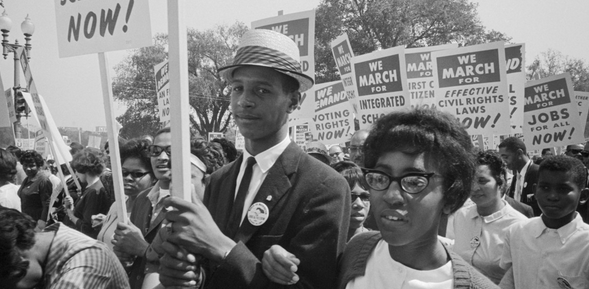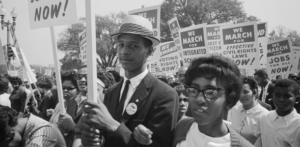Black History Yesterday, Today and Tomorrow


Black History is a subject that has been celebrated for many years, with February officially designated as Black History Month in the United States. Yesterday, black history was often overlooked and not taught in schools, leading to a lack of understanding and appreciation for the contributions of black people throughout history. Today, black history is more widely recognized and celebrated, with many educational institutions and organizations dedicating resources and efforts to promoting awareness and understanding of black history and culture.
One of the key figures in black history is Martin Luther King Jr., who is best known for his role in the Civil Rights Movement of the 1950s and 1960s. King’s speeches and nonviolent protests played a significant role in ending legal segregation and discrimination against black people in the United States. His “I Have a Dream” speech, delivered on the steps of the Lincoln Memorial in 1963, is one of the most iconic speeches in American history and continues to be an inspiration to many.
Another important figure in black history is Malcolm X, who was a prominent civil rights leader and advocate for black nationalism. Malcolm X advocated for self-defense and self-reliance for black people and was a vocal critic of the Civil Rights Movement’s emphasis on integration and nonviolence. His speeches and writings continue to be widely studied and admired today.
Black history also includes the stories of countless other individuals who have made significant contributions to society. From scientists and inventors to artists and politicians, black people have made a lasting impact on the world and continue to do so today. For example, George Washington Carver, a prominent agricultural scientist, developed hundreds of products from peanuts, sweet potatoes and soybeans, which helped to revolutionize Southern agriculture. Similarly, Garrett Morgan, an inventor and businessman, invented the gas mask, which has been used to save countless lives, and the traffic signal.
Despite the progress that has been made in recognizing and celebrating black history, there is still much work to be done. Racism and discrimination continue to be pervasive in many areas of society, and black people continue to face significant economic and social disparities. In education, Black students are often underrepresented in advanced classes, and have lower graduation rates than their white counterparts. In the criminal justice system, black people are disproportionately represented among the incarcerated population, and are more likely to be the victims of police violence.
To address these issues, it is essential that we continue to celebrate and learn about black history, and use this knowledge to inform our actions and decisions. This includes supporting black-owned businesses and organizations, and advocating for policies that promote racial justice and equality. It also means educating ourselves about the ongoing struggles that black people face, and using our privilege to speak out against racism and discrimination wherever we see it.
In conclusion, Black history is a vital and important subject that has been celebrated for many years, but it is also important to remember that the fight for racial justice and equality is ongoing. By learning about and celebrating the contributions of black people throughout history, we can gain a deeper understanding and appreciation of their experiences, and use this knowledge to inform our actions and decisions. As we look to the future, it is crucial that we continue to work towards creating a more just and equitable society for all.





